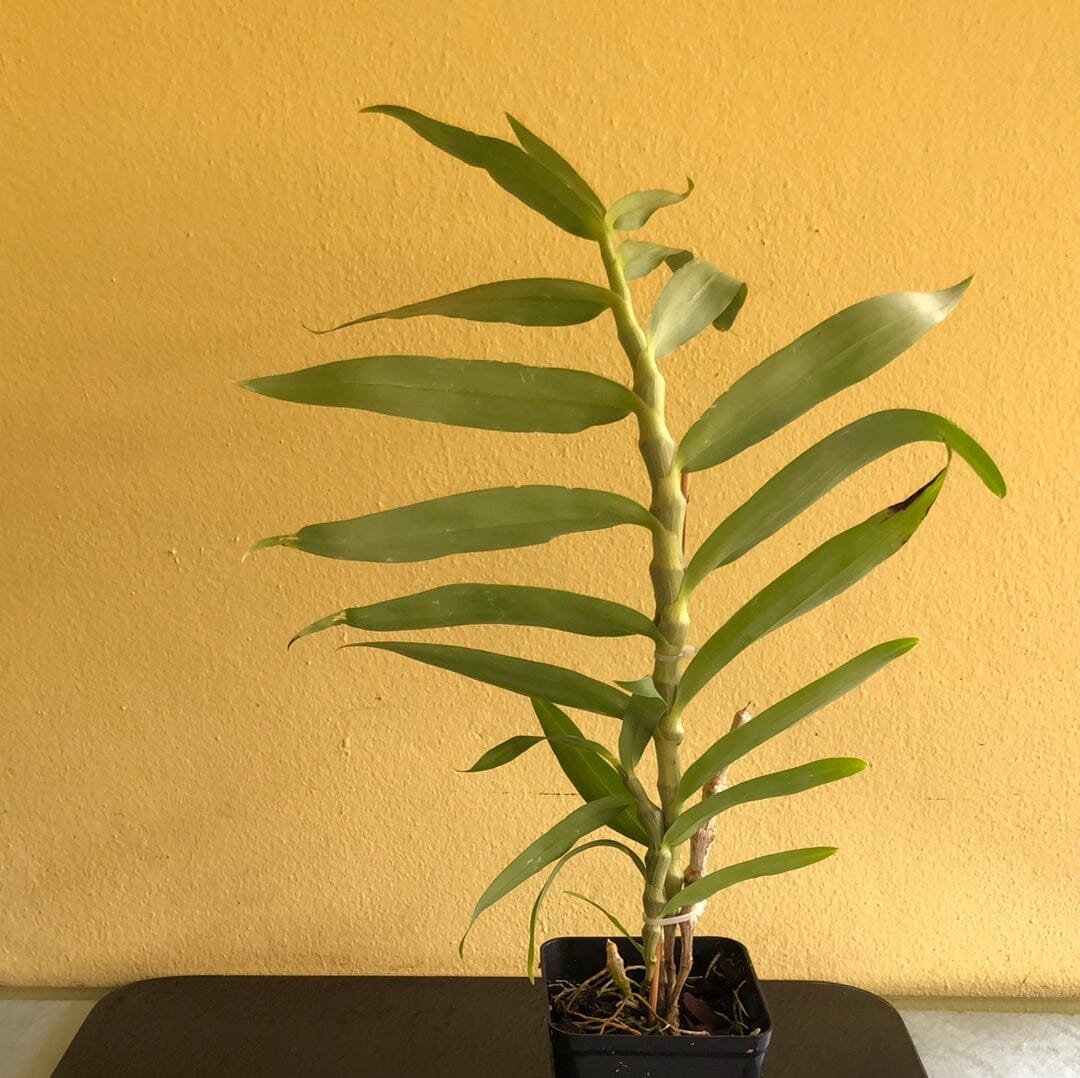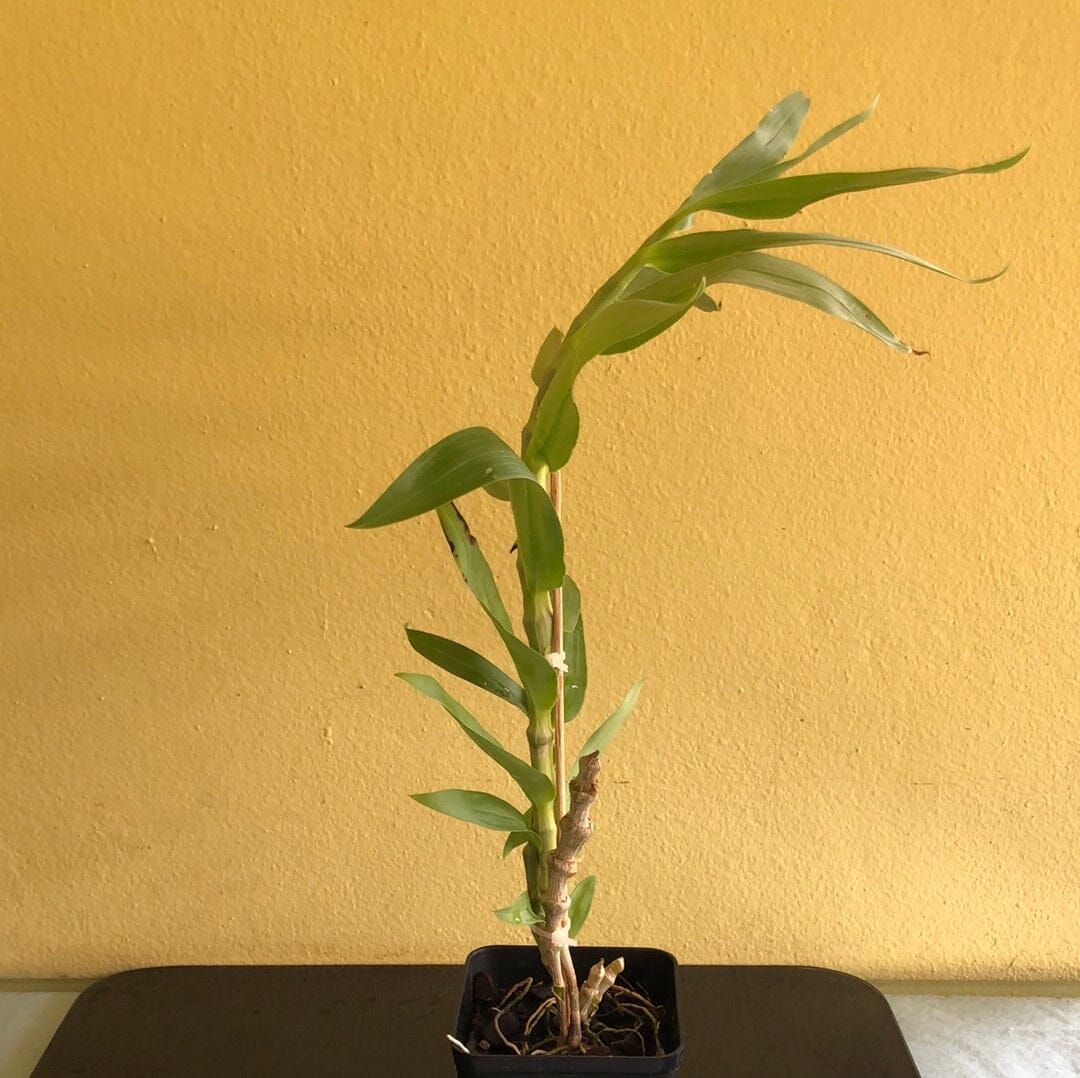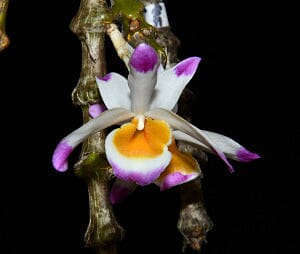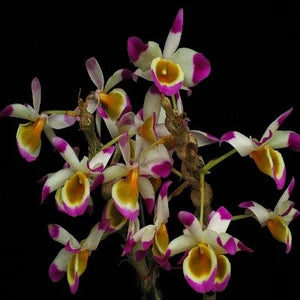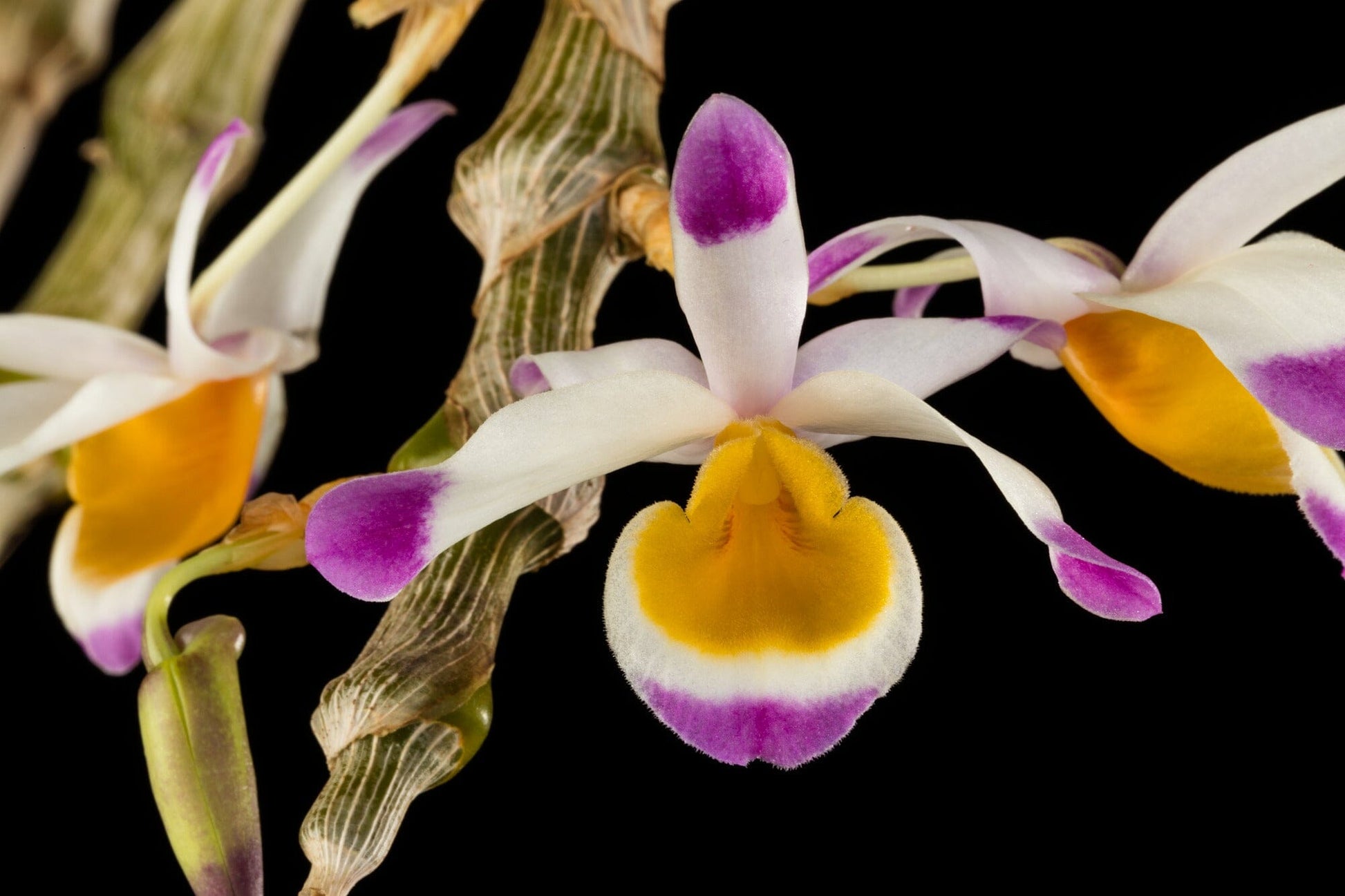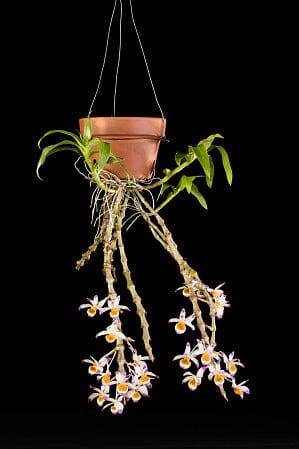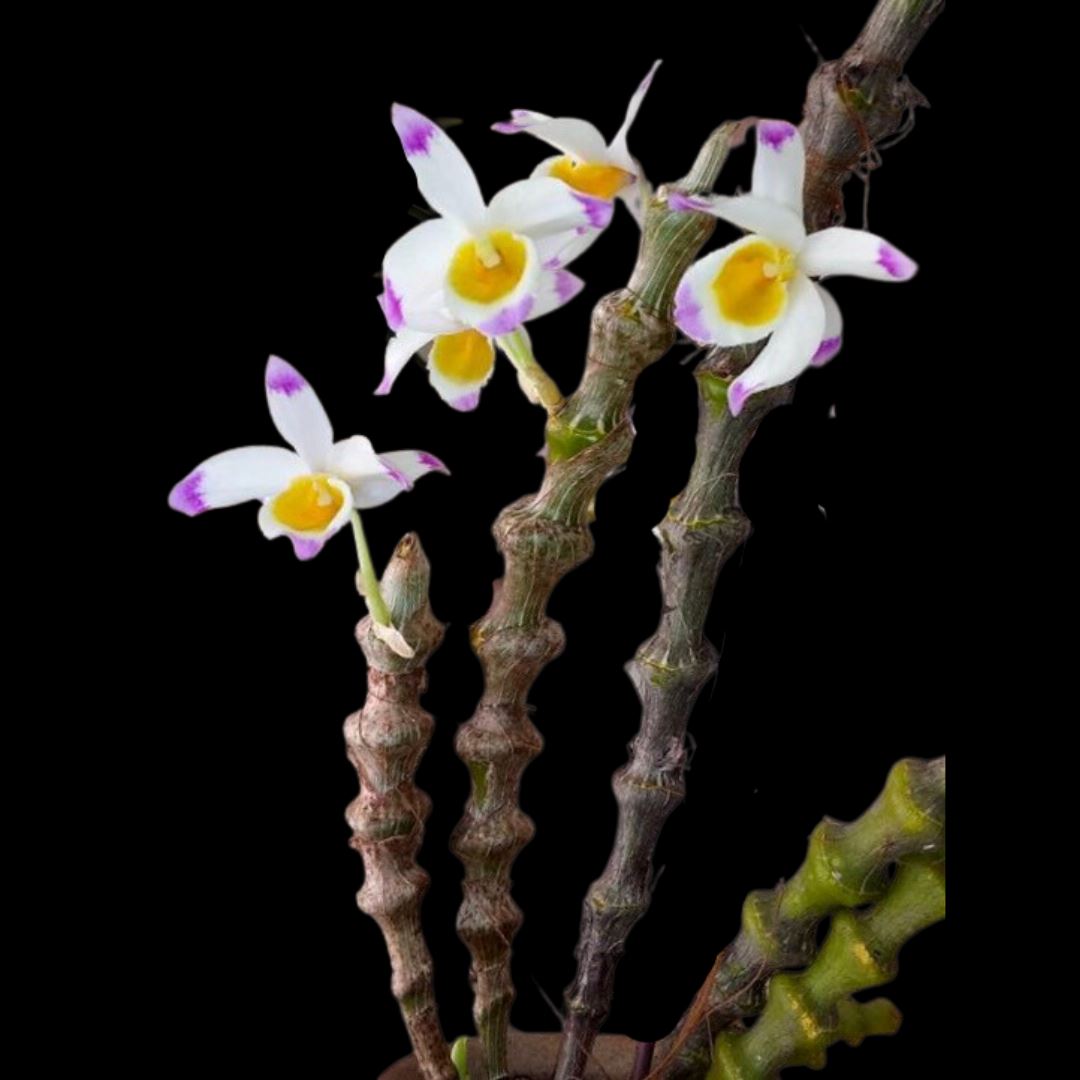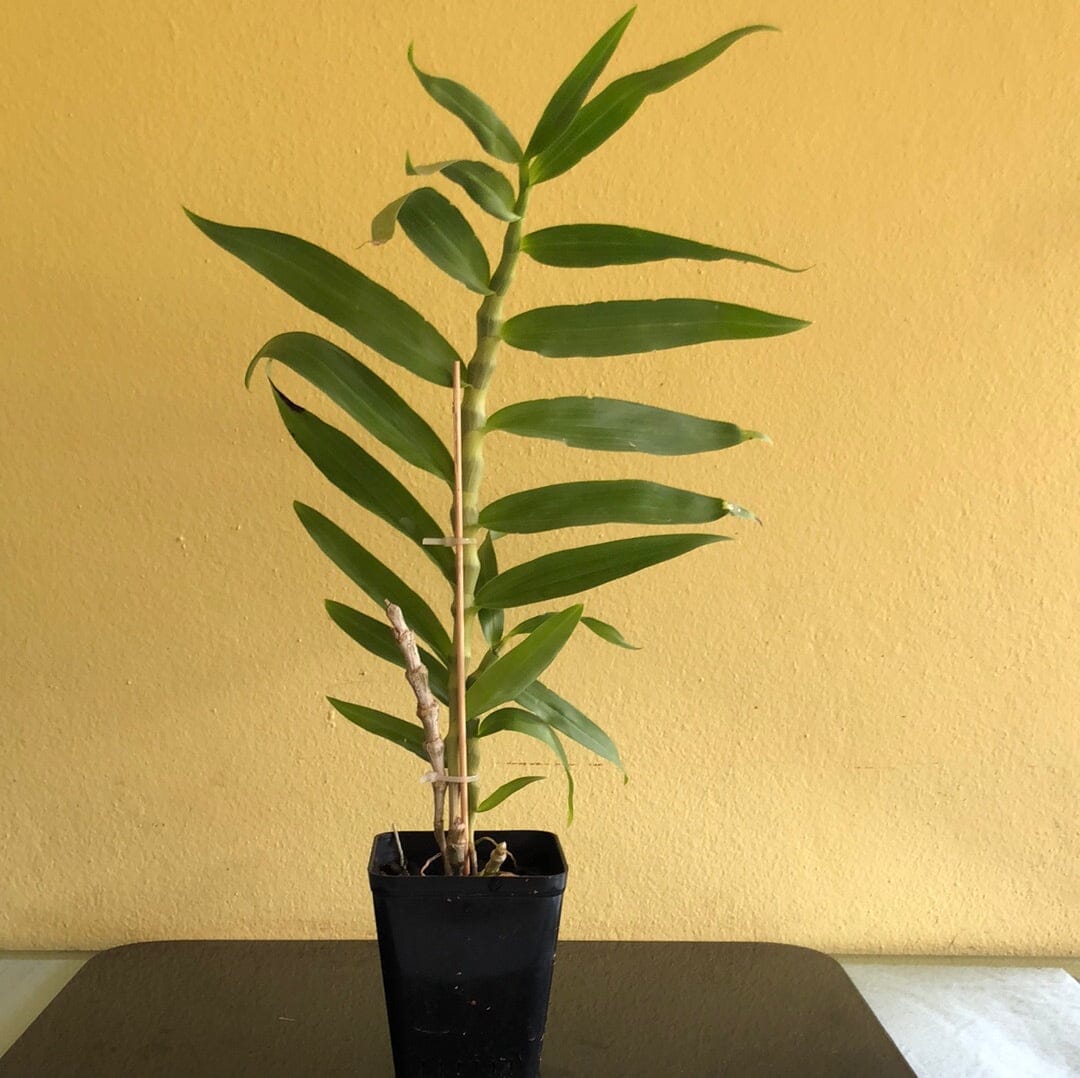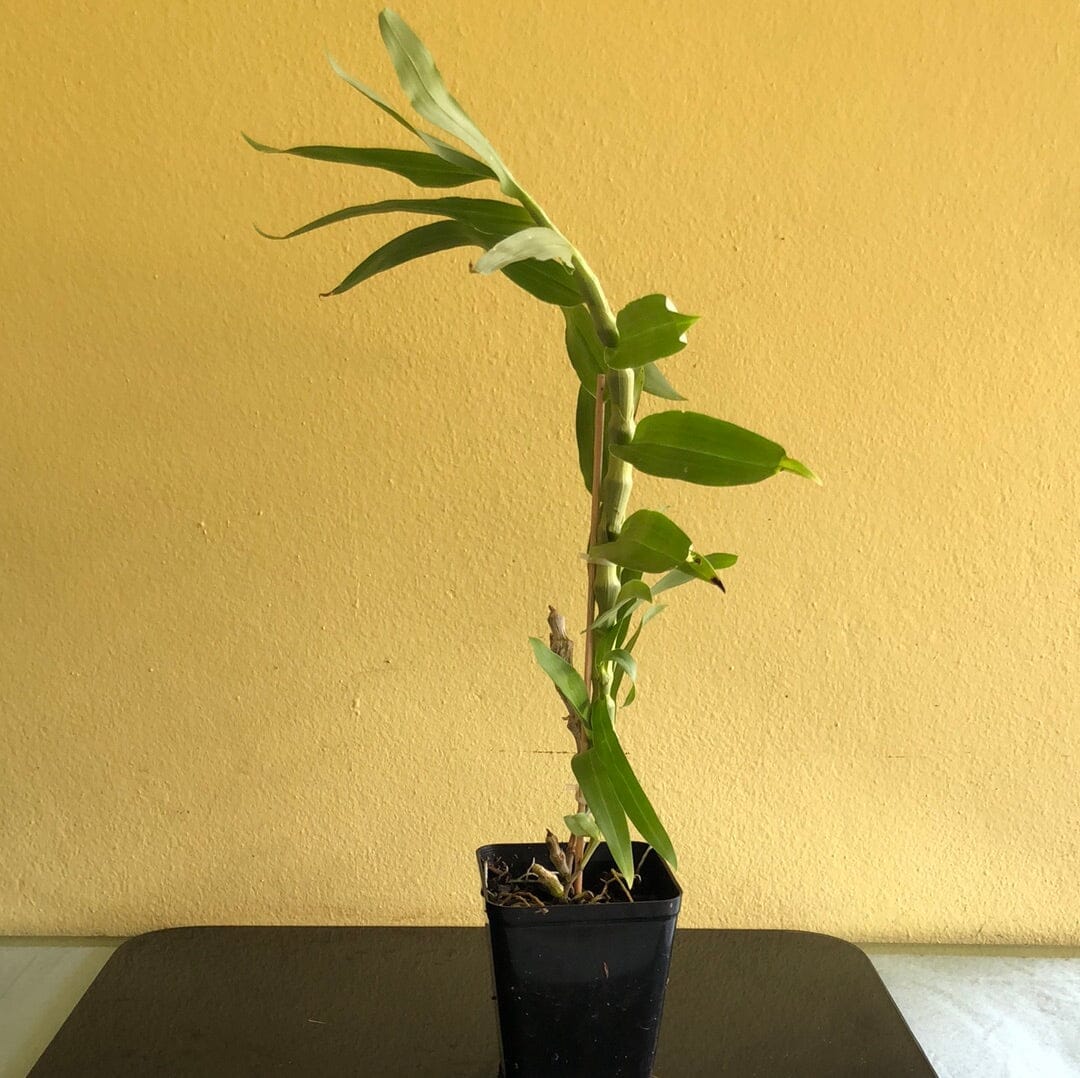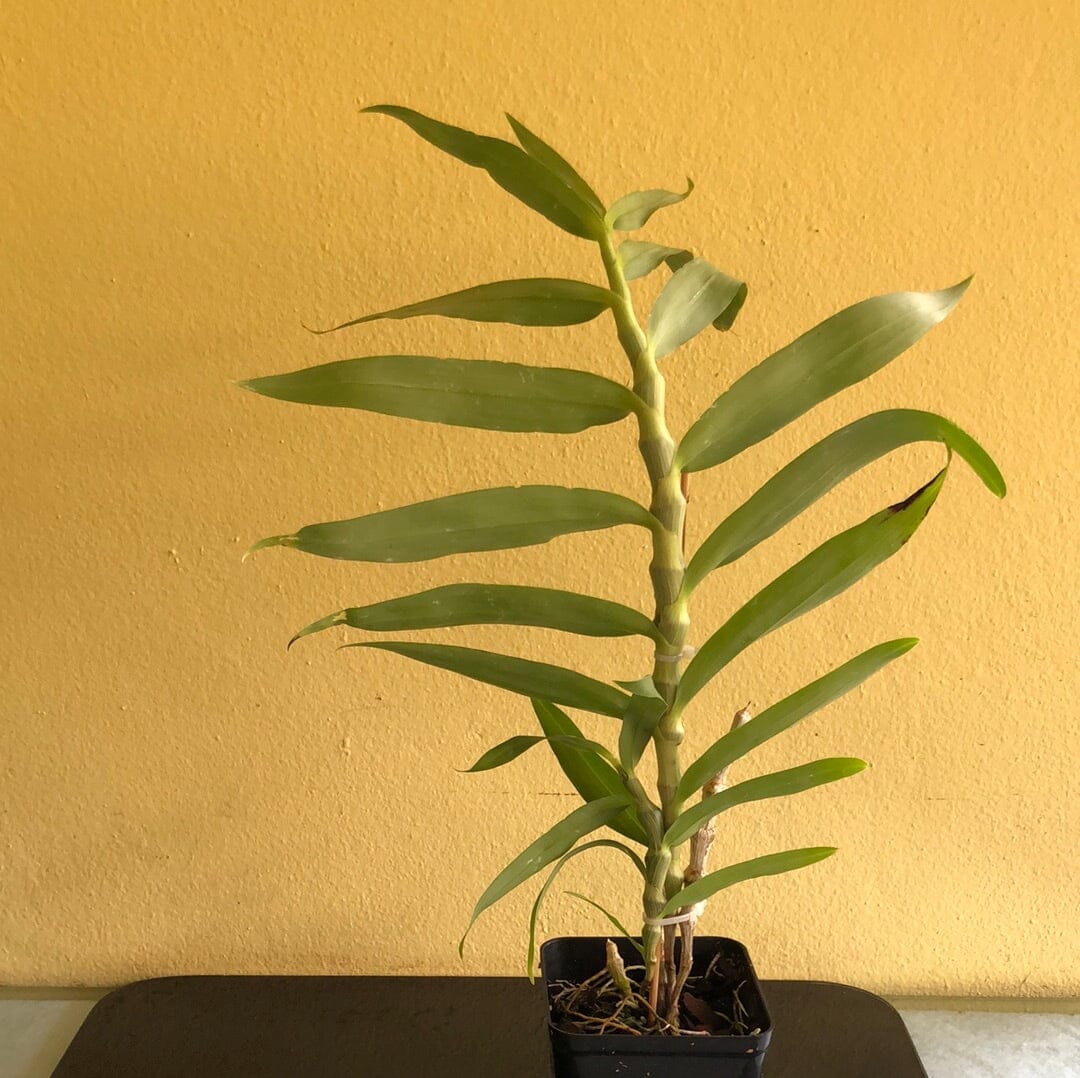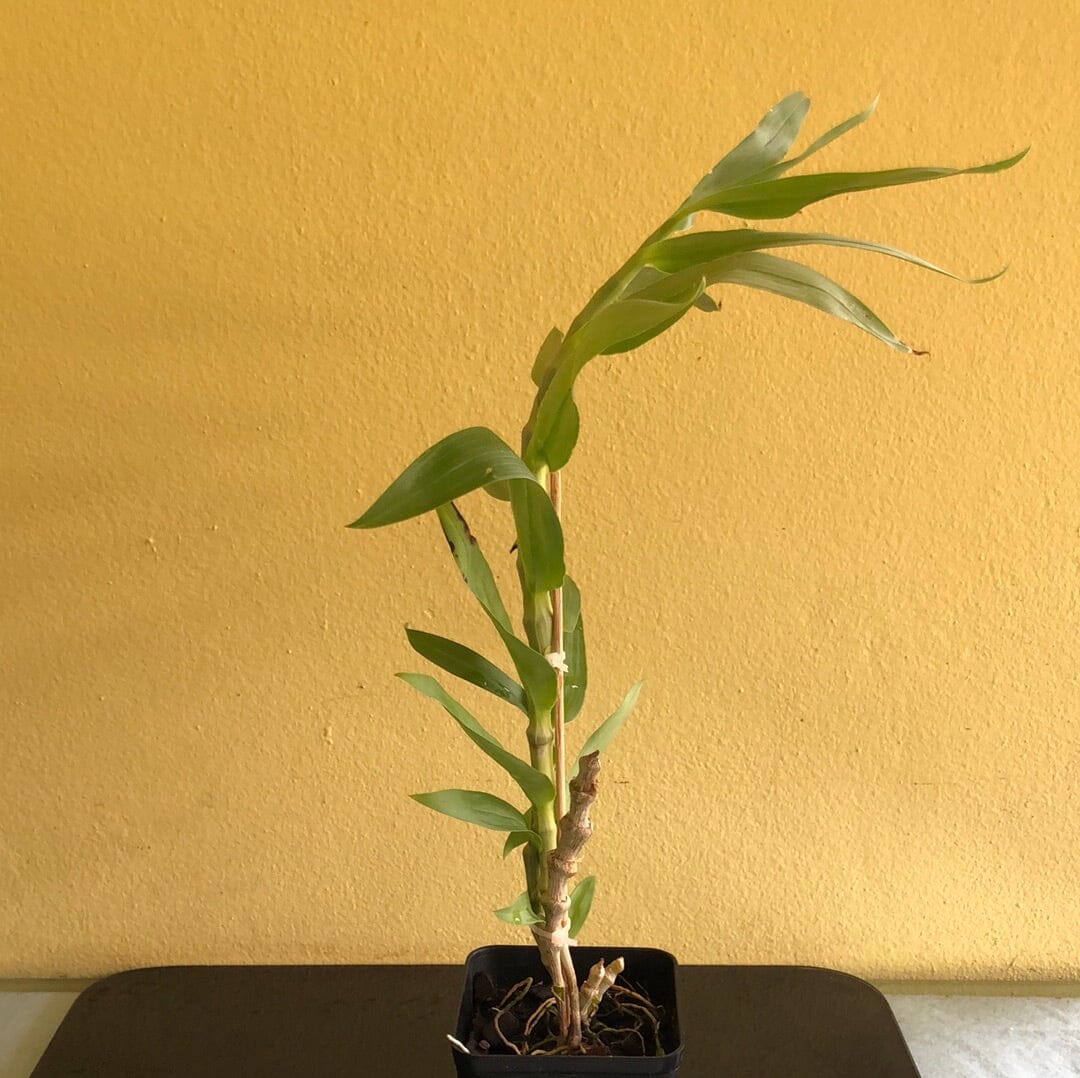La Foresta Orchids
Dendrobium pendulum
Dendrobium pendulum
Couldn't load pickup availability
Introducing the Graceful Dendrobium pendulum – A Marvel from the East
Discover the enchanting world of the Dendrobium pendulum, a captivating orchid species native to the pristine regions of Hainan and Tibet in China, as well as Assam, Bangladesh, Myanmar, Thailand, Laos, and Vietnam. This remarkable orchid thrives in the heart of open forests, embracing tree trunks at elevations ranging from 760 to 1600 meters above sea level.
Elegant Growth
The Dendrobium pendulum showcases a diverse range of characteristics, from small to large-sized, and prefers warm to cool environments. Its unique appearance is characterized by tufted masses of decurved or pendulous stems, boasting 7 to 16 nodes, each distinctively swollen. The stems are sulcate and display a dull olive-green hue, accompanied by deciduous, lanceolate leaves with semi-amplexicaul and acute features. They have some of the coolest canes (distinct canes with swollen nodes) we have came across on Dens thus far for Dendrobiums.
A Symphony of Blossoms
The Pendant Growing Dendrobium is renowned for its spectacular blooms, which grace us primarily from late winter to early spring, although sporadic flowering can occur throughout the fall and spring seasons. These captivating blossoms are perched upon axillary, short, and few-flowered inflorescences, adorned with boat-shaped, papery floral bracts. These delicate flowers emanate a fragrant aura, captivating your senses with their long-lasting beauty. Measuring between 2 1/2 to 3 inches in diameter, the flowers boast equal-sized, oblong, pointed sepals and petals, sporting a pristine white shade with amethyst to purple tips. The pièce de résistance is the kidney-shaped, velvety lip, which dazzles in white, adorned with captivating yellow and amethyst markings at the tip.
Cultivation Tips
Light: Dendrobium pendulum flourishes under full sunshine, requiring lux levels ranging from 25000 to 50000. For indoor cultivation, glasshouse treatment is recommended, supplemented with artificial light lamps.
Temperature: During the summer, maintain a daytime temperature of 25-26°C and a nighttime temperature of 21°C, creating a daily temperature difference of 4-6°C. As winter arrives, transition to an average daytime temperature of 27-30°C and a nighttime temperature of 16-17°C, providing a daily temperature difference of 13°C.
Humidity: From late spring to autumn, maintain a humidity level of approximately 80%. As winter and early spring approach, reduce humidity to around 60%. Adequate humidity is essential for healthy growth, as dry air can inhibit development and lead to yellowing and drying of leaves. Adjust humidity levels in conjunction with temperature changes, ensuring regular and sufficient ventilation to prevent rot and fungal diseases.
Substrate and Repotting: Optimal growth occurs when Dendrobium pendulum is housed in wooden baskets filled with staghorn peat as a substrate. Ensure aeration by lining the bottom with large pieces of wood-charcoal. Repot only when necessary, such as in cases of substrate salinization, compaction, or when the plant has outgrown its current pot. The best time for repotting is immediately after flowering when new roots and growth emerge.
Watering: While these orchids appreciate generous watering during summer, they thrive in a dry atmosphere. The frequency of watering depends on the temperature, with higher temperatures necessitating more frequent watering. Ensure excess water flows freely from the pot to prevent root rot and other issues.
Fertilization: Maintain orchid health by using a 1/4-1/2 dose of orchid fertilizer weekly. Use balanced fertilizer year-round or switch to high-nitrogen fertilizer in spring to mid-summer and high-phosphoric fertilizer until late autumn to stimulate flowering.
Rest Period: In the winter, reduce watering, especially if your orchid experiences shorter, darker days at moderate latitudes. Allow the plant to dry somewhat between waterings, maintaining morning fogging and sparing, economical watering to facilitate a dry rest period. Reduce or eliminate fertilization until new growth emerges, signaling the need for increased hydration in spring.
This is a blooming size orchid in a 4” pot, about 1 to 2 years to bloom, grown from seed, Limited!
Unlock the secrets of successful Dendrobium pendulum cultivation and watch as this extraordinary orchid graces your surroundings with its enchanting beauty and fragrant allure.







